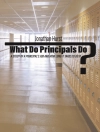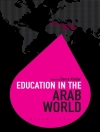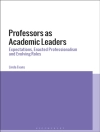‘Brad Evans in one of the brightest critical minds of his generation’ – Henry A. Giroux
Whether physical or metaphorical, institutional or interpersonal, violence is everywhere. A seemingly immutable fact of life, it is nonetheless rarely engaged with at the conceptual level. What does violence actually mean? And is it an inevitable part of the human condition?
Conversations on Violencebrings together many of the world’s leading critical scholars, artists, writers and cultural producers to provide a kaleidoscopic exploration of the concept of violence. Through in-depth interviews with thirty figures including Marina Abramovic, Kehinde Andrews and Simon Critchley, Brad Evans and Adrian Parr interrogate violence in all its manifestations, including its role in politics, art, gender discrimination and decolonisation.
Provocative, eye-opening and bracingly original, Conversations on Violence sheds light on a definingpolitical and ethical concern of our age.
Table des matières
Introduction – Brad Evans & Adrian Parr
1. The Poetry of Resistance – Malcolm London
2. Breaking the World – Marina Abramovic
3. Trans-species Encounters – David Rothenberg
4. Recovering from an Addicted Life – Russell Brand
5. Non-Violence & the Ghost of Fascism – Todd May (Clemson University)
6. Without Exception: On the Ordinariness of Violence – Lauren Berlant (University of Chicago)
7. The Anatomy of Destruction – Gil Anidjar (Columbia University)
8. The Intimate Witness: Art and the Disappeared of History – Chantal Meza
9. The Death of Humanitarianism – Mark Duffield (Global Insecurities Centre)
10. The Expulsion of Humanity – Saskia Sassen (Columbia University)
11. When Art is Born of Resistance – Martha Rosler
12. The Tragedy of Existence – Simon Critchley (New School for Social Research)
13. The Violence of the Algorithm – Davide Panagia (University of California)
14. Thinking Art in a Decolonial Way – Lewis Gordon
15. What does an Anti-Fascist Life Feel Like? – Natasha Lennard (New School for Social Research)
16. Life in Zones of Abandonment – Henry A. Giroux
17. The Violence of Absent Emergencies – Santiago Zabala
18. The Ghosts of Civilised Violence – Alex Taek-Gwang Lee (Kyung Hee University, Seoul)
19. Violence is Freedom – Roy Scranton (University of Notre-Dame)
20. Slavery in America – Ana-Lucia Araujo (Howard University)
21. Why We Should All Read Walter Benjamin Today – James Martel (San Francisco State University)
22. Unlearning History – Ariella Aisha Azoulay (Brown University)
23. When Death Travels – Gareth Owen
24. The Poverty of Violence – Ananya Roy (UCLA)
25. The Violence of Denial – Linda Melvern
26. Why We Should All Read Malcolm X Today – Kehinde Andrews (Birmingham City University)
27. America is Not a Fascist State. It’s an Authoritarian one – Ruth Ben-Ghiat (New York University)
28. The Atmosphere of Violence – Fatima Bhutto
29. The Inherited Memory of Art – Mark Bradford
30. Look Closer, Then You Will See – Isaac Cordal
31. The Revolutionary Potential of Pacificism – Richard Jackson (University of Otago, NZ)
Index
A propos de l’auteur
Adrian Parr is an internationally recognised environmental, political and cultural thinker and activist. She is Dean of the College of Design at the University of Oregon, and she serves as a UNESCO Chair on Water and Human Settlements.












